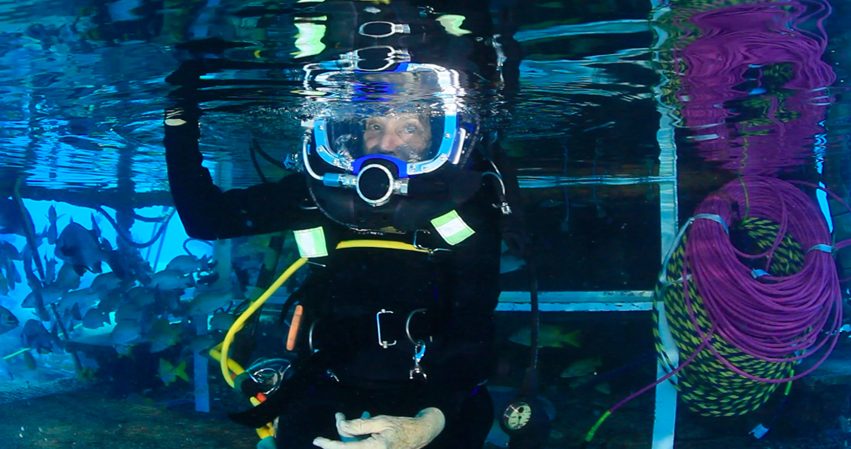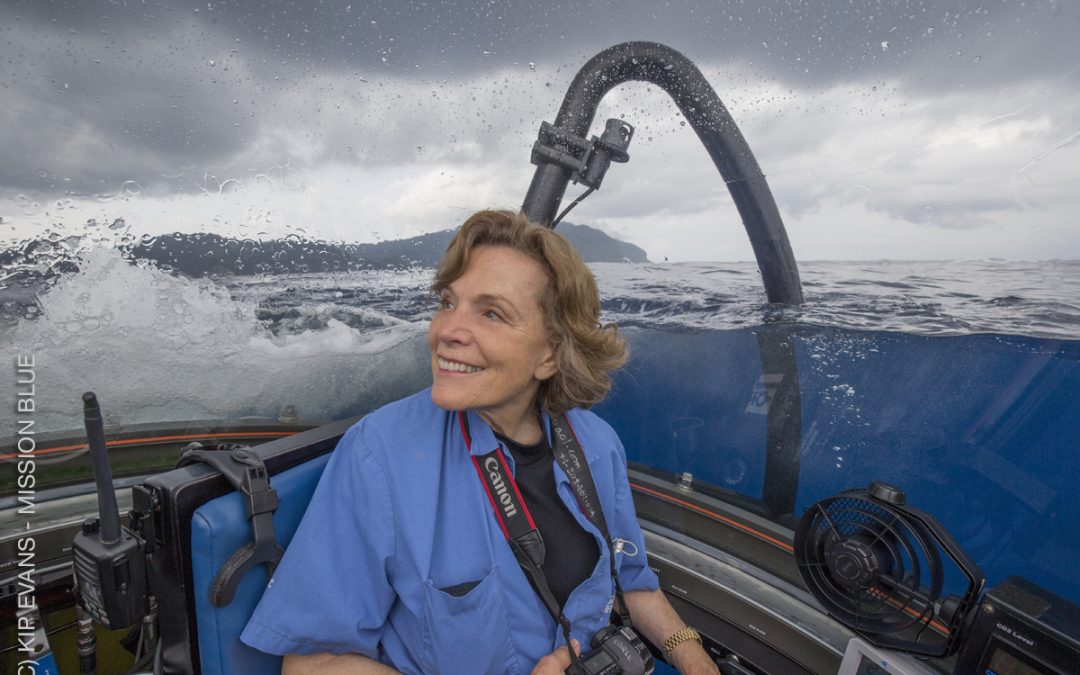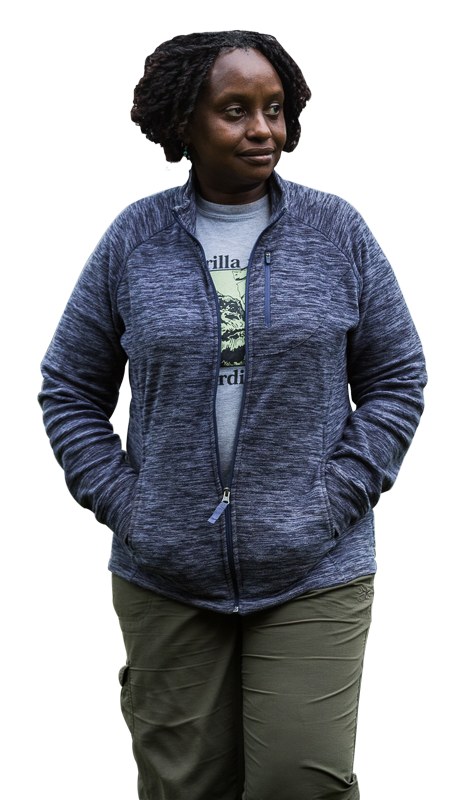Sylvia Earle, a finalist for the 2020 Tällberg Eliasson Global Leadership Prize, behaves like a woman running out of time, which she is. The world’s foremost oceanographer — the Jacques Cousteau of our era, dubbed “Her Deepness” — she is on the road most of the year, and has logged countless hours underwater since her first dive, in a Florida river, when she was 16. But where Cousteau introduced audiences to the wonders of the deep, Earle warns of their disappearance, educating people on what is being lost to pollution, overfishing, and climate change.
She is not without hope. “I’ve been a witness of the greatest time of loss” she says—referring to the removal of 90 percent of the big fish from the ocean and the loss of half its coral. “At the same time, we have learned more than at any time in history. “ A National Geographic explorer-in-residence since 1998, Earle herself has been studying marine life for more than five decades, and was the first woman to serve as chief scientist at the National Oceanic and Atmospheric Administration, among other pioneering achievements.
About a decade ago, she founded Mission Blue, which has been doggedly establishing “Hope Spots”—marine protected areas—in the oceans, with the goal of protecting 30 percent of the ocean by 2030. Each is backed by a community of what she calls “champions,” who have made a commitment to take care of them. “We need eyes in the ocean,” she says. With her daughter, she continues to develop new technologies that can provide enhanced access to the sea.
“We certainly need scientists to go deep,” she says,” but I really want to get teachers. I want to get the kids. I want CEOs, I want the leaders of countries to go see what’s in their blue backyard.” The goal is to change the way humans relate to the ocean. As she once said about the consumption of cod, halibut, swordfish, and other large marine predators, “Eating these fish is like eating the last Bengal tigers.”

Despite her record-breaking underwater adventures, she is somewhat wistful about the limited time any diver can spend in a deep-sea environment. “Jane Goodall had 15 years … looking at one species that she got to know so well that she transformed the way people think about [it],” she points out.
Yet today, as a pandemic and climate change are revealing daily just how much human activity is affecting the planet, Earle is embracing her leadership role. That has meant limiting her own opportunities for exploration so that others, particularly young people, can experience the deep. They come back changed, she says, and this is creating “a network of ambassadors who could see what I could see.”
She recalls that when National Geographic first asked her to write about life underwater, in 1970, she was reluctant, fearful of being viewed as a popularizer—until she came across an essay by Thomas Huxley: “He said that as a scientist you have a responsibility.” A half-century later, that responsibility weighs much heavier. “We’ve got the evidence now as never before,” she says. “My plans are to do whatever I can to take this moment and build on it.”


